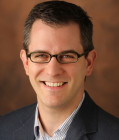Connect with the author
In the United States, ordinary middle and working class citizens almost never hold office in any level or branch of government. Compared to the constituents they represent, presidents, Supreme Court justices, members of Congress, governors, and state legislators – even city council members – all tend to be significantly wealthier, more educated, and disproportionately from white-collar occupations. Class disconnects between leaders and citizens trouble many Americans, and research shows that they seriously tilt economic policy toward the wealthy.
But the United States is hardly alone in being governed by the highly privileged. In most democracies across the globe, politicians are vastly better off than their constituents. And processes of economic policymaking are similarly skewed to benefit the wealthy and disadvantage the less fortunate. Proponents of political equality in America are developing programs to encourage more everyday citizens to run for public office – and reforms developed here may prove broadly useful for improving democratic governance around the world.
Government by the Privileged in Developing Democracies
In most of the world’s democracies, wealthy people from business and white-collar professions do most of the work of government, while manual laborers, service sector workers, and people working in the informal sector almost never hold public offices. A fresh look at data from Latin America, for example, underlines these realities:
- As in most advanced and developing countries, most of the labor force in Latin American countries is working class. In less developed countries like Bolivia and Honduras, the working class makes up close to 90% of the economy. Even in more developed countries like Argentina, more than two out of every three citizens have working-class jobs. On average across Latin American nations, roughly 80% of citizens are workers.
- By contrast, in the typical Latin American legislature only about 10% of representatives hail from working class backgrounds. In all 18 of major democracies in the region, the gap between the percentage of working class people in the economy and the percentage of legislators from working class backgrounds amounts to at least 6o points. Workers are the backbone of the economies, but barely have a seat at the governing table.
The Effects of Government by the Privileged
Why does the class background of legislators matter if representatives are fairly elected and held accountable to their constituents? Indeed, in many countries, political parties form tight coalitions and legislators vote in party lock step. But even though parties and constituents do a great deal to keep elected officials in line, representatives still have a lot of leeway. Most of the work in any legislature goes on behind closed doors, in stages most citizens never see. Even parties that exercise strong control over legislative voting often give individual legislators the freedom to introduce bills that they care about and shape the agenda to address problems of special concern to them.
In these instances, research shows that legislators often base their discretionary choices on their own experiences, views, and personal preferences. As is true for U.S. legislators, the preferences of legislators in developing countries are influenced by previous experiences. Surveys in many Latin American countries show that legislators from working class backgrounds consistently express more progressive views on economic issues than their counterparts from more privileged backgrounds. Likewise, legislators from white-collar jobs – especially those from the most privileged positions in the private sector – tend to bring more conservative outlooks to office.
Final votes on bills may not reveal such differences clearly, because the end-game in the legislative process is the stage where party discipline and party coalitions wield the most influence. But in maneuvers behind the scenes, legislators from different classes work from distinctly different priorities.
In Argentina, for examples, parties are strong and legislators from different classes tend to register final votes about the same way as others in their party. Nevertheless, Argentinian legislators from the working class tend to introduce substantially more progressive economic bills. Careful measurements of different proclivities to introduce bills allow us, as social scientists, to estimate quite precisely what difference class makes when bills are introduced. In a typical legislative session in Argentina, the scarcity of legislators from the working class translates into roughly 50 fewer progressive bills being introduced.
The story in Argentina is replicated in many other countries. Because there are so many white-collar lawmakers, there are more people ready to act when the time is right for the conservative policies preferred by more affluent citizens – and, of course, there are fewer ready to push pro-worker measures when opportunities arise. Such a tilt in behind the scenes influence means that, over time, workers’ values and interests lose out, no matter how formally democratic the system may be.
Finding New Ways to Encourage Working-Class Politicians
Scholars don’t yet know why democracies elect so many privileged leaders or what exactly is keeping working-class people out of political office. Many hypotheses are being tested – about possible causes ranging from voter biases, party gatekeeping, and unequal candidate resources to differences in political ambition and the decline of unions. But as this causal research proceeds, reformers are looking for ways to tackle the challenge of encouraging more middle and working class people to run for public office. If more people from typical jobs run, more will hold office – and we know that will make a difference in the policies considered and enacted by representative legislatures.
As reformers in the U.S. develop programs to bring more working people into public office, they should do so with an eye to potential cross-national applications. The United States is not alone in being governed by the rich. As we find ways to make our representative institutions more inclusive, we should share the best ideas with fellow democracies in Latin America and beyond.
Read more in Nicholas Carnes and Noam Lupu, “Rethinking the Comparative Perspective on Class and Representation: Evidence from Latin America,” Juan March Institute, April 2013.

